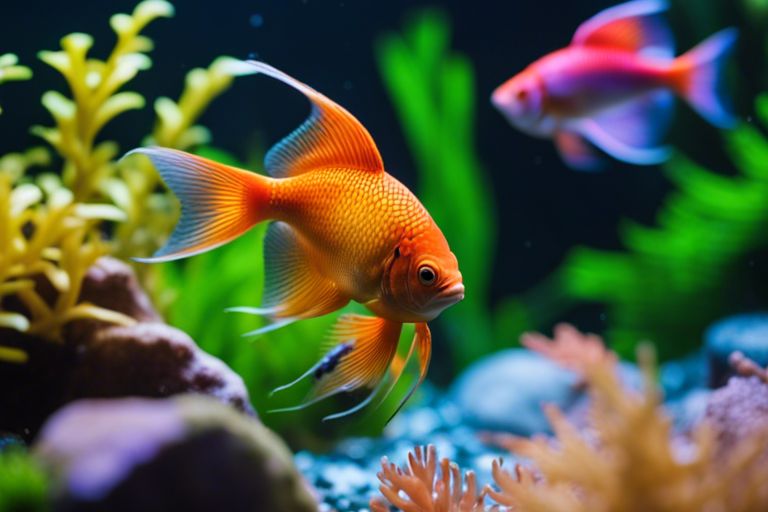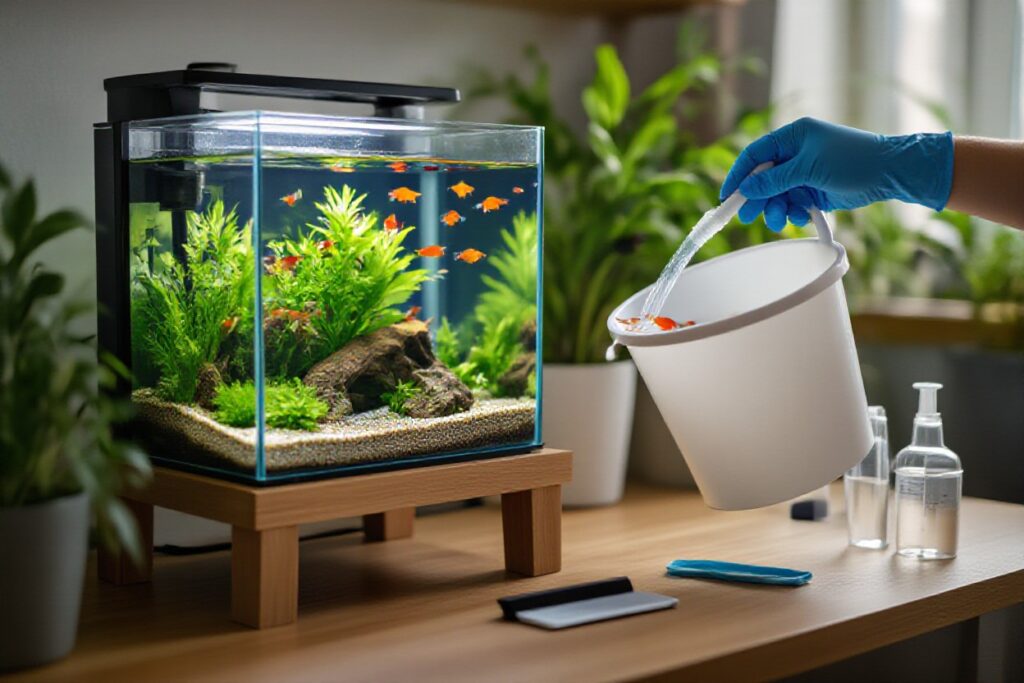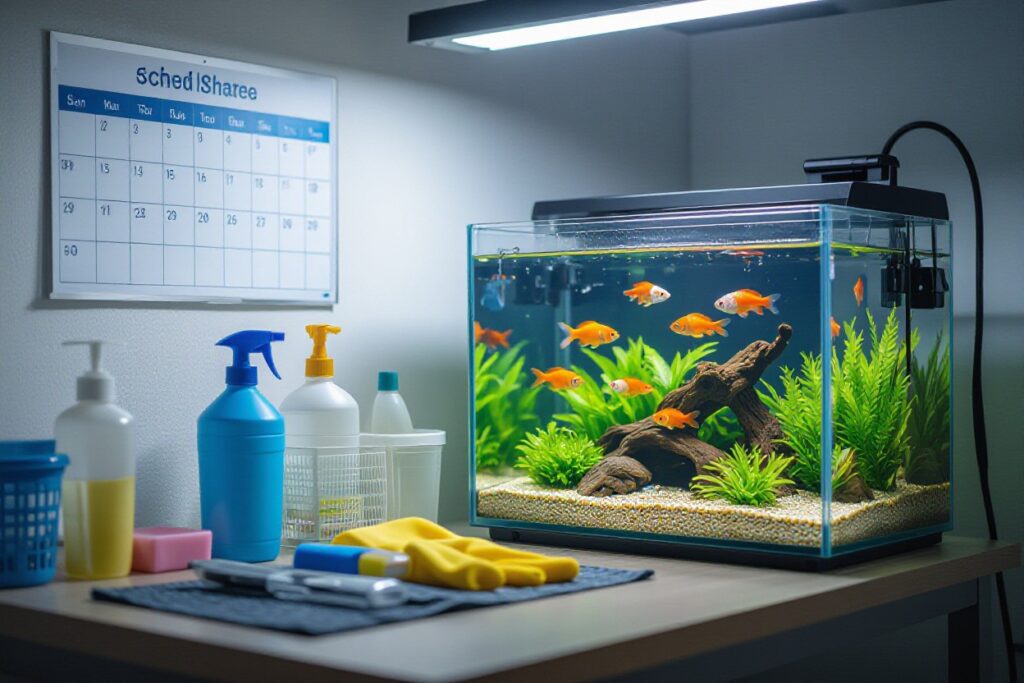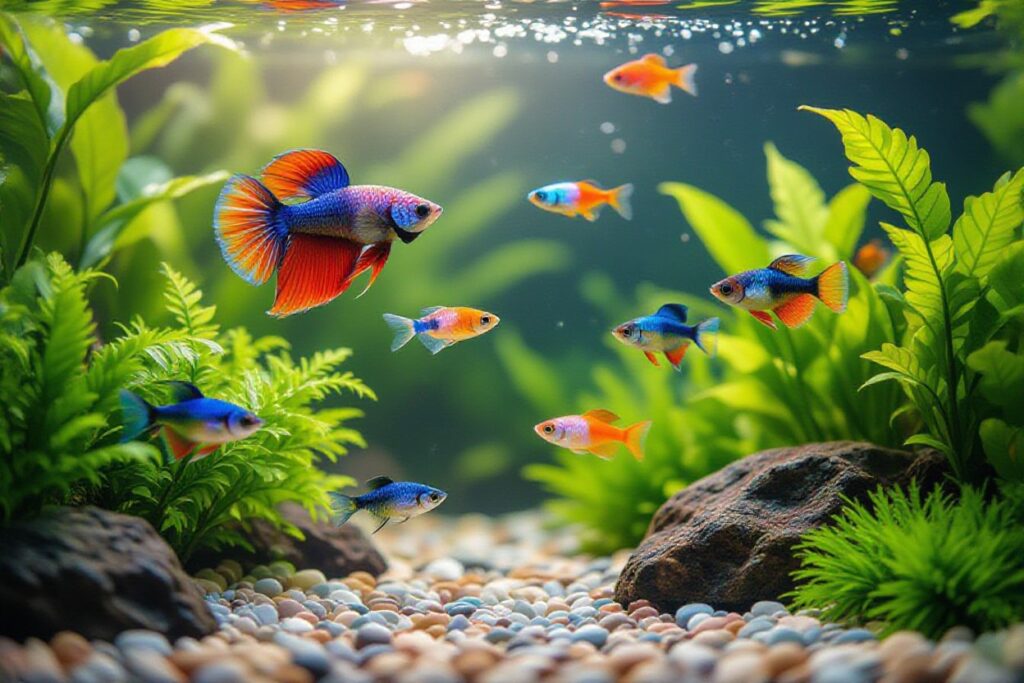It is crucial for fish owners to understand the significance of proper filtration in maintaining the health and well-being of their aquatic pets. Just like any other living being, fish require a clean and healthy environment to thrive. Inadequate filtration can lead to a build-up of harmful substances such as ammonia and nitrites, which can be detrimental to the fish’s health. By providing a well-maintained filtration system, fish owners can ensure optimal water quality, reduce stress on their fish, and create a conducive environment for overall fish health and longevity. Let’s dive deeper into why proper filtration is important for maintaining fish health.

Understanding Water Quality
Parameters of Clean Water
For optimal fish health, it is important to understand the parameters of clean water in an aquarium. Factors such as pH levels, temperature, ammonia, nitrite, and nitrate levels are crucial in maintaining a healthy aquatic environment. Regular monitoring and testing of these parameters are necessary to ensure that they are within the appropriate range for the specific fish species.
Common Water Contaminants and Toxins
Water quality is highly susceptible to contamination from various sources, including chemicals, heavy metals, and pollutants. These contaminants can have detrimental effects on fish health and lead to diseases or even death if not addressed promptly. Understanding the common water contaminants and toxins is vital for maintaining a safe and healthy aquatic environment for your fish.
Toxins such as chlorine, chloramine, and heavy metals can enter the aquarium through tap water or improper cleaning practices. These substances can stress fish, weaken their immune systems, and ultimately result in illness or fatalities. Investing in a reliable water dechlorinator and filtration system can help remove these toxins and ensure a safe living environment for your aquatic pets.
Types of Filtration Systems
Some of the most common types of filtration systems used in maintaining fish health include mechanical, biological, and chemical filtration. Each plays a crucial role in keeping the aquarium environment clean and stable, ensuring the well-being of the fish inhabitants.
| Mechanical Filtration | Physical removal of solid debris from the water. |
| Biological Filtration | Conversion of toxic substances like ammonia and nitrites into less harmful nitrates. |
| Chemical Filtration | Utilizes chemical media to remove impurities and pollutants from the water. |
Mechanical Filtration
Types of mechanical filtration systems typically include sponge filters, filter pads, and filter floss. These filters physically trap and remove debris such as fish waste, uneaten food, and plant matter from the water, preventing them from decomposing and causing water quality issues.
Biological Filtration
Filtration through biological media such as bio balls or ceramic rings promotes the growth of beneficial bacteria that break down harmful substances produced by fish waste and decaying organic matter. This important process helps maintain a stable nitrogen cycle in the aquarium, crucial for the overall health and longevity of the fish.
Chemical Filtration
Filtration systems that utilize chemical media, like activated carbon or zeolite, work by adsorbing impurities and pollutants from the water. These media can effectively remove odors, discoloration, and harmful chemicals, ensuring a cleaner and healthier aquatic environment for fish to thrive in.

Filtration System Maintenance
Regular Cleaning Schedule
Now, maintaining a regular cleaning schedule for your filtration system is crucial to ensure the health and well-being of your fish. Depending on the type of filtration system you have, you may need to clean it weekly, bi-weekly, or monthly to prevent the build-up of debris and ensure optimal water quality.
Replacement of Filter Media
Now, proper maintenance of your filtration system also includes regular replacement of filter media. Over time, the filter media can become clogged with debris and lose its effectiveness in removing impurities from the water. It is important to follow the manufacturer’s recommendations for replacing filter media to ensure efficient filtration.
The replacement of filter media is important to maintain a healthy aquatic environment for your fish. By replacing the filter media according to the manufacturer’s guidelines, you can ensure that your filtration system is operating at maximum efficiency, effectively removing harmful substances from the water and providing a clean and safe habitat for your fish.

Advanced Considerations
- Advanced Filtration Techniques
UV Sterilizers Chemical Filtration Biological Filtration Fluidized Bed Filters Protein Skimmers Denitrification Filters - Filter Media Options
Activated Carbon Ceramic Rings Zeolite Filter Floss Bio Balls SeaChem Matrix
Filtration for Different Fish Species
Considerations: When deciding on a filtration system, take into account the specific needs of the fish species in your aquarium. Some fish require higher water flow rates or specific water parameters, which may influence the type of filtration system you choose. Research the requirements of your fish to ensure their health and well-being.
Troubleshooting Filtration Problems
Any: It is important to regularly monitor your filtration system for any signs of malfunction, such as reduced water flow or unusual noises. Common filtration problems include clogging of filter media, malfunctioning pumps, or bacterial imbalances. Addressing these issues promptly can prevent potential harm to your fish.
Different filtration systems may require specific troubleshooting techniques, so refer to your system’s manual for guidance. Additionally, consulting with a professional or experienced aquarist can provide valuable insights into resolving filtration issues effectively.
Final Words
So, it is clear that proper filtration is crucial in maintaining fish health in an aquarium. A well-functioning filtration system helps to remove waste, toxins, and maintain water quality, creating a healthy environment for your fish to thrive in. Regular maintenance and cleaning of your filtration system are crucial to ensure its efficiency. By understanding the importance of filtration and taking the necessary steps to maintain it, you can help to prevent diseases, stress, and ultimately promote the longevity of your aquatic pets. Bear in mind, a healthy environment leads to healthy and happy fish.
FAQ
Q: Why is proper filtration important in maintaining fish health?
A: Proper filtration is crucial in maintaining fish health because it helps remove harmful waste products, toxins, and excess nutrients from the water, creating a clean and healthy environment for fish to thrive in.
Q: What are the benefits of having a good filtration system in a fish tank?
A: A good filtration system helps in oxygenating the water, removing debris, and providing a stable environment for beneficial bacteria to thrive, which aids in biological filtration and waste breakdown.
Q: How often should the filter media be cleaned or replaced?
A: The filter media should be rinsed or replaced according to the manufacturer’s instructions, typically every 2-4 weeks, to prevent clogging and maintain optimal filtration efficiency.
Q: What are the different types of filtration systems available for fish tanks?
A: The main types of filtration systems include mechanical, biological, and chemical filtration. Each type plays a unique role in maintaining water quality and fish health.
Q: Can overfiltration be harmful to fish?
A: Yes, overfiltration can be harmful to fish as it may disrupt the nitrogen cycle and remove necessary nutrients, leading to a sterile environment that lacks vital beneficial bacteria for biological filtration.
Q: How can I troubleshoot filtration problems in my fish tank?
A: If you encounter filtration issues such as low water flow or cloudy water, check for clogs, ensure the filter is properly primed, and test water parameters to identify any imbalance that may be affecting filtration efficiency.
Q: What other factors should be considered in addition to filtration for maintaining fish health?
A: In addition to filtration, factors such as water temperature, pH levels, oxygenation, proper diet, and tank maintenance play a critical role in ensuring the overall health and well-being of fish in an aquarium.











